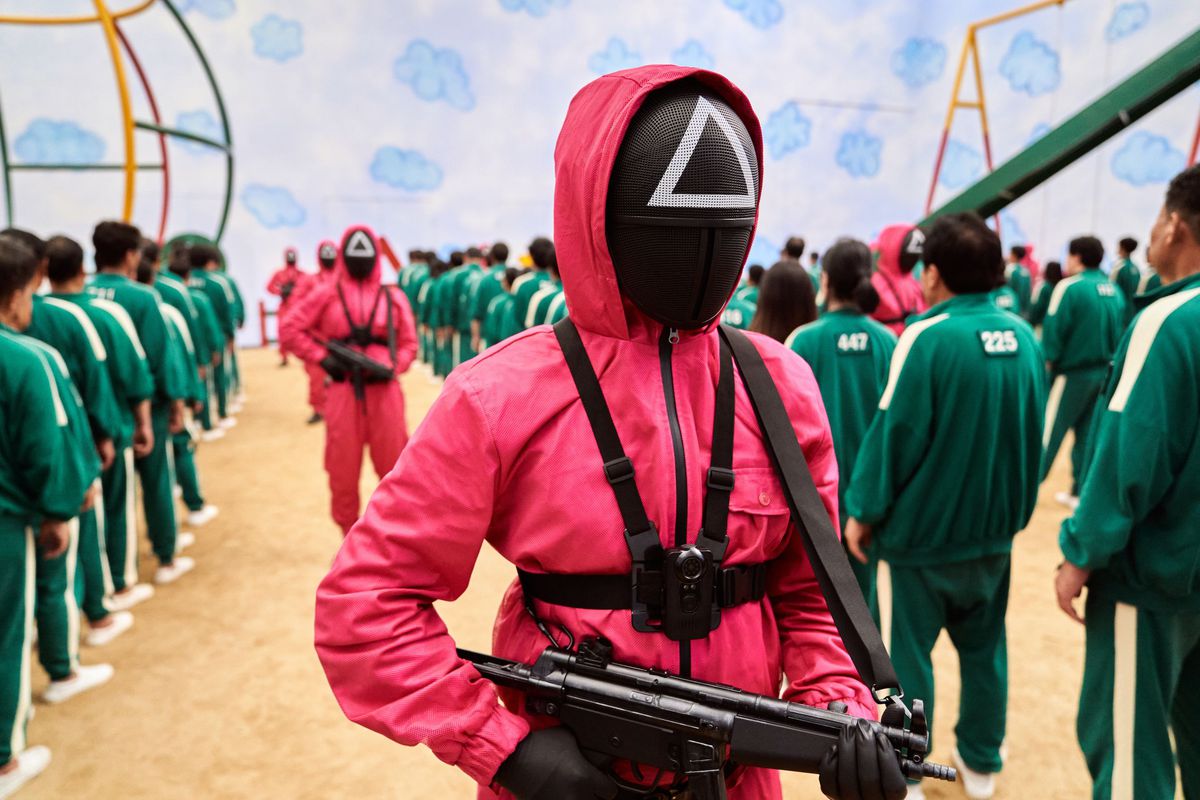Death Games: a trope that transcends genres and cultures. Whether it’s horror, dystopia, comedy, drama, or some mix of everything, humans have been attracted to the idea of games with stakes for thousands of years. But this trope has seen special attention in the past twenty years. Why? Post 9/11 anxiety about threats around every corner? Disillusionment with the dog-eat-dog rhetoric of capitalism? Some combination thereof?
Whatever the reason, here’s some of the best movies and shows about Death Games:
Battle Royale
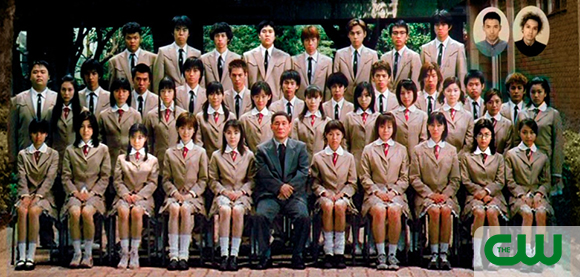
Perhaps the most disturbing part of this story is the fact that all of the participants know each other; every single one of these characters have been classmates for years, so when they choose to murder each other, it’s not just strangers hurting each other, but friends who are desperately trying to survive and falling victim to their former friends. I will admit, the capitalist undertones are minimal, focusing more on the dynamic of old traditionalism vs young modernism/individualism. But it’s still a tragic story of what happens when tyrannical traditionalism clashes with the rebellious youth.
The Hunger Games

So many young adults from the 2010s had a Hunger Games phase (I should know, I was one of them). And for good reason. A seemingly simple story about a girl in a fight to the death was rounded out by classism, colonialism, consumerism, ruralism vs urbanism, ‘pretty privilege,’ ability / disability, race, and a thousand other themes that turned a simple premise into one of the most ironic critiques of capitalism of the 2010s.
Would You Rather
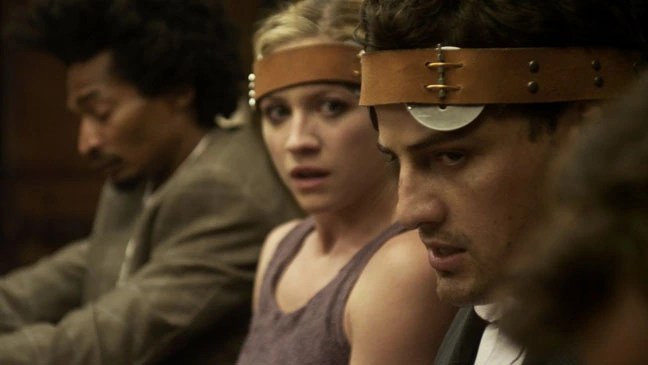
Perhaps one of the most heart-wrenching entries on this list, the movie Would You Rather is a demonstration of how being in competition with each other for the favor of the rich ultimately only benefits the rich who rig the game from the start. Unlike many torture-porn-esque horror movies of the 2000s, Would You Rather focuses on the human aspect of the violence committed. These characters aren’t just meat for the slaughter but a disabled woman trying to pay for her procedure, a young woman trying to care for sick brother, a gambler trying to work past his debts and start anew. It’s a story that is just as relevant now as it was when it first came out in the wake of Occupy Wall Street in 2012.
Ready or Not
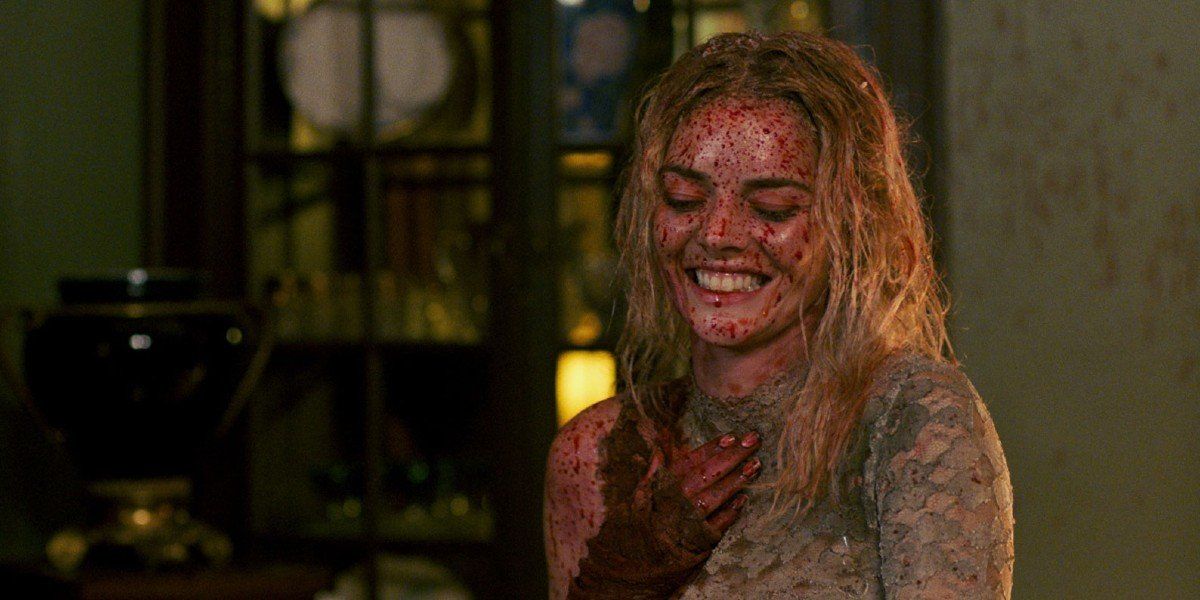
A deadly game of hide-n-seek where a poor bride is hunted by her rich in-laws. What’s interesting about this one is the intermingling themes of toxic families and the privilege that wealth buys. There’s also an implication in the film that everyone in the family marries poor people specifically because they know they wouldn’t be able to hide the deaths of richer, more important people. Even love cannot necessarily be overcome by the issues of wealth and power inequality.
Running Man
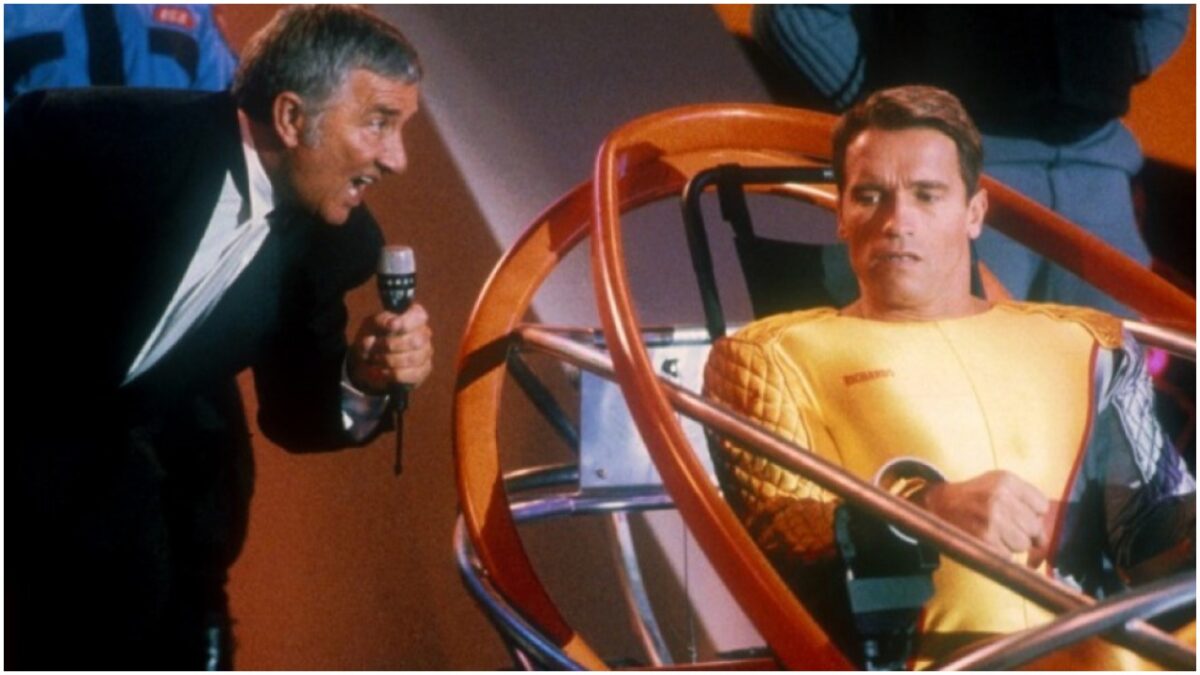
This one was one of the earliest to bring television into the equation. Where some of these stories have these happening in secret, in the secluded homes of the rich, Running Man analyzed the brutality of game show culture and the entertainment industry that treats humans as props. It forces us to analyze what we are willing to tolerate being done in the name of entertainment, in addition to what we are willing to do for our own survival.
Squid Game
We all knew this was coming. Squid Game on Netflix took the Internet by storm and for good reason. The intersection of bright colorful jumpsuits and children’s games only served to highlight the horror of being forced to kill or die for the entertainment of the rich.
Variations:
The Jumanji movies
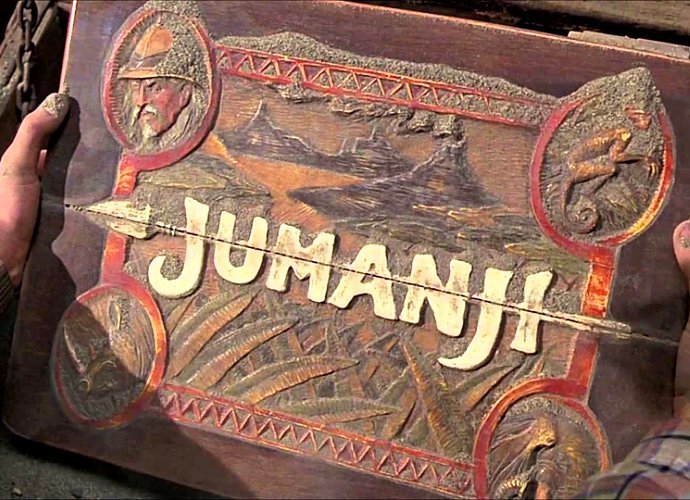
The first one is the one with the most explicit “man hunting man” metaphor, with the big game hunter tracking Alan for the whole movie; the fact that the game only ends after Alan stands up to this hunter (who is played by his father’s actor for extra manipulation) seals it. But I want to highlight Jumanji: The Next Level. After Spencer has a mental crisis, he seeks to go back to the world of Jumanji to escape the real world. Only he ends up as a mousy thief character instead of his usual Smolder Bravestone. This goes to show how escapist entertainment doesn’t help us fix our problems, only helps us deny their existence, and only through self-actualization can we make lasting change.
The SAW movies
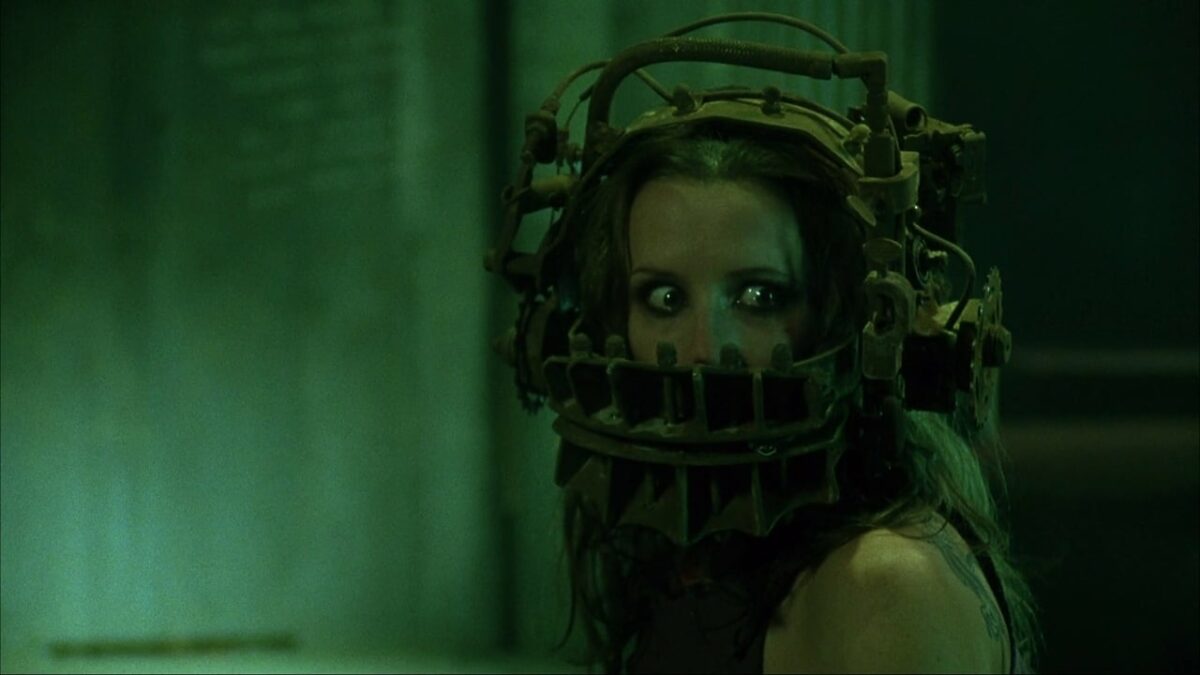
“I wanna play a game.” That phrase spawned a franchise of 9 movies, as well as many imitators in the 2000s, and arguably kickstarted the torture porn genre that defined horror of the era. An exercise in sadistic irony, the traps of the Jigsaw killer and his apprentices seem engineered to teach moral lessons in the most painful ways possible. However, the games can vary wildly in the quality of the lesson they are trying to teach. Even the ones that aren’t rigged can feel particularly unfair; burning a liar’s wife alive instead of punishing the liar himself? I will say that the 2nd and 6th installments are probably the closest to getting it right; the second is a brutal takedown of police corruption and brutality and the 6th is a condemnation of medical insurance companies that make decisions for both doctors and patients.
So why do we keep returning to this trope?
Some of these death games are a fun twist on childhood games, with greater stakes for the characters. What if a board game/video game was actually trying to kill you? What if hide-n-go seek was a game of life and death?
But many are also ruthless condemnations of capitalist structures; Structures that keep workers in competition with each other, instead of banding together. That prioritizes the status quo over the individuals.
“Oh, your coworker is quietly quitting, that makes more work for everyone else.” No, your coworker is doing their job and setting firm boundaries.
“Oh, unions take money from workers.” They also advocate for workers and fund the strikes that lead to real workplace change. Almost all of the happy endings on this list come when the individuals work together against the game makers / rich proprietors.
So, this Labor Day, think about what’s really worth fighting and dying for.
Additional Death Game media from other Mary Sue Writers:
- Danganronpa
- Magical Girl Raising Project
- Tomodachi Game
- Portal
- Bodies Bodies Bodies
- Kaiji
- Kamen Rider Ryuki
- The Condemned
- The Belko Experiment
- Death Race 2000
- Smash TV
- CUBE!
(image: Netflix)
—The Mary Sue has a strict comment policy that forbids, but is not limited to, personal insults toward anyone, hate speech, and trolling.—
Have a tip we should know? [email protected]
